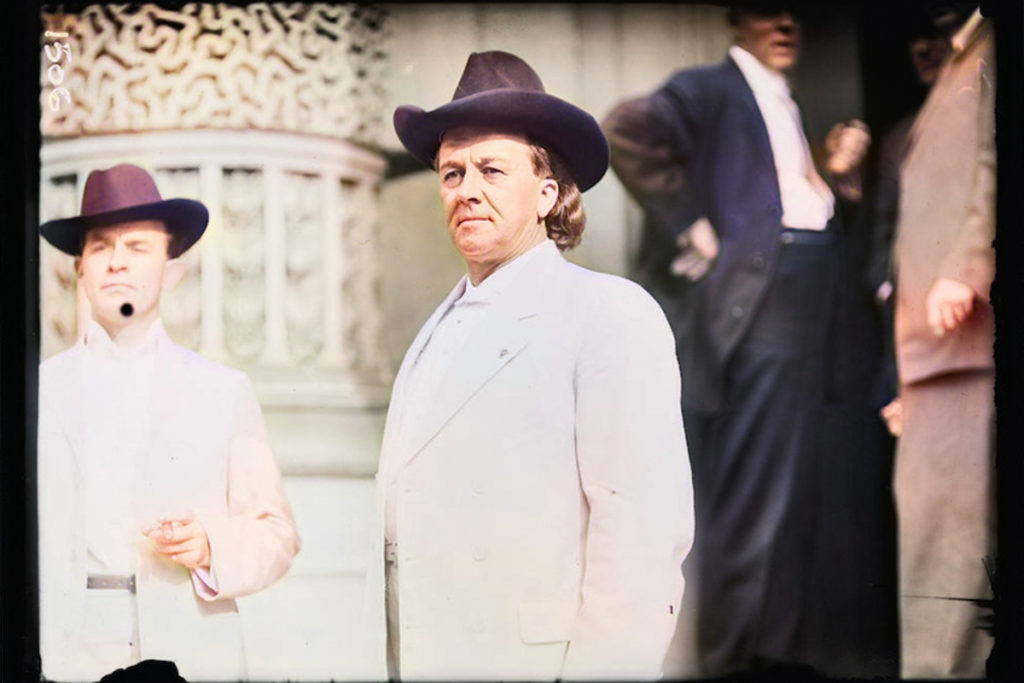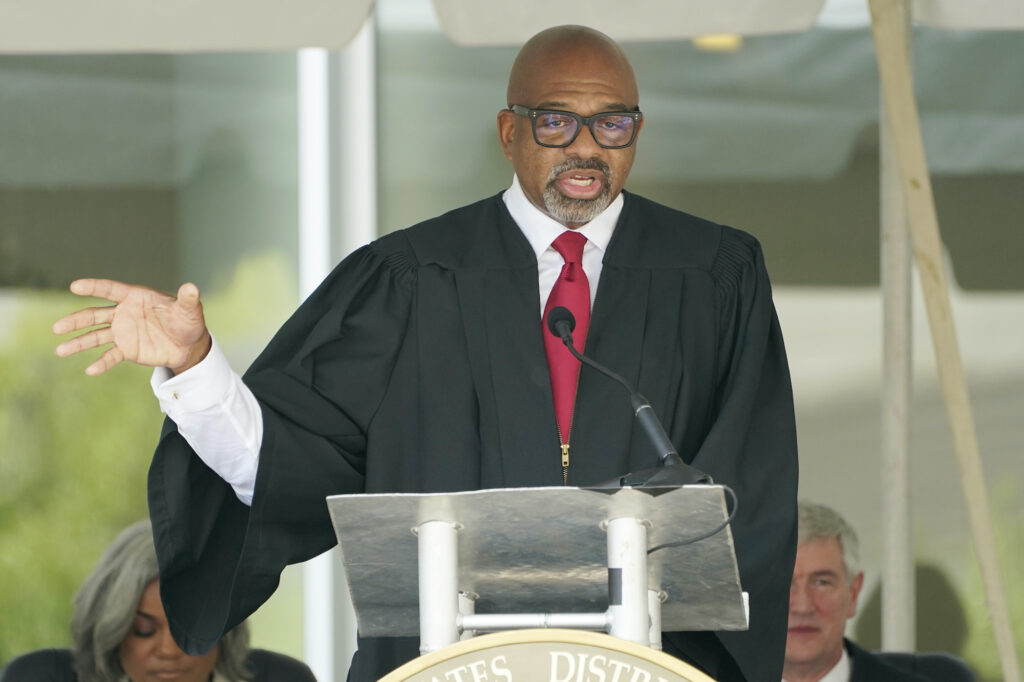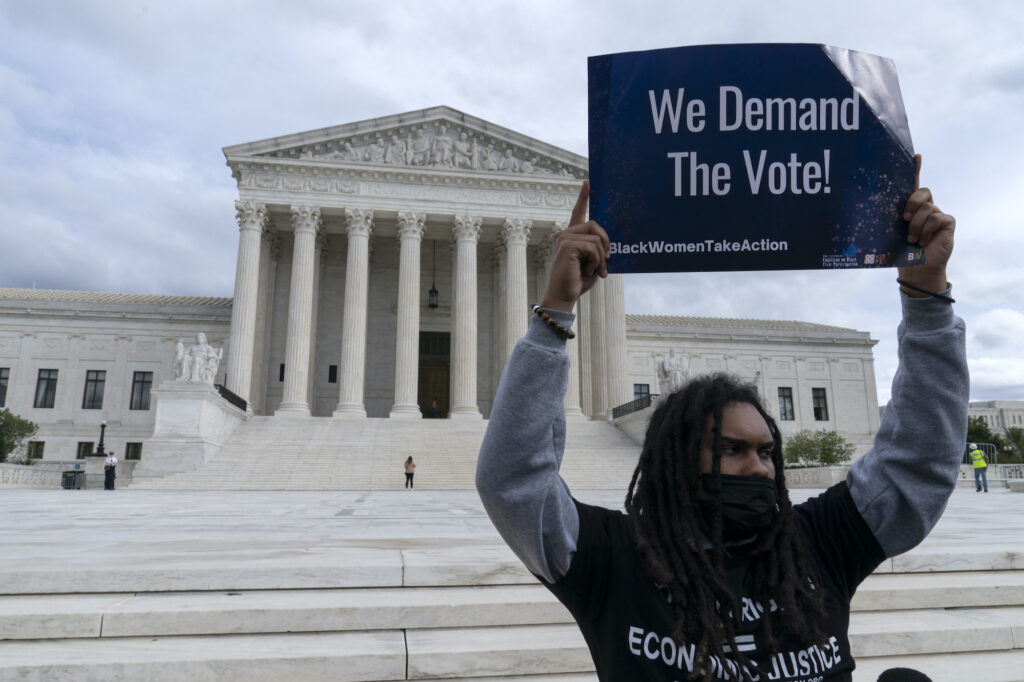The Mississippi Center for Justice is asking the U.S. Supreme Court to review a Jim Crow voting law that Mississippi’s white-supremacist leaders adopted in 1890 in an attempt to disenfranchise Black residents for life. White lawmakers wrote a provision into the Mississippi Constitution that designates certain crimes that they believed Black people were more likely to commit as “disenfranchising crimes.”
On Aug. 24, the conservative 5th U.S. Circuit Court of Appeals in New Orleans admitted in a ruling that the provision was “steeped in racism,” but the court’s white, conservative majority voted to uphold it anyway by claiming Mississippi has made enough changes since 1890 to override the white-supremacist “taint” of Jim Crow.
In a statement on Friday, Oct. 28, the Mississippi Center for Justice announced that they had filed a petition with the U.S. Supreme Court for review in the case, Harness v. Watson. MCJ first filed the lawsuit in 2017 on behalf of two disenfranchised Black Mississippians, Roy Harness and Kamal Karriem.
“At a time when our state and nation are struggling with the vestiges of history and racism, it is important that the United States Supreme Court step in and address this remaining vestige of the malicious 1890 plan to prevent an entire race of people from voting in Mississippi,” Rob McDuff, the lawyer leading the case and the director of MCJ’s Impact Litigation Project, said.

“Although the Supreme Court has become more conservative in recent years, we hope it will see that the continued implementation of this racist provision is an affront to the promise of the Equal Protection of the Law contained in the Fourteenth Amendment to the U.S. Constitution,” McDuff added.
Civil-rights and voting-rights advocates have grown concerned in recent years that the U.S. Supreme Court’s now 6-3 conservative majority could roll back protections, however. Today, the high court heard a case that many fear could overturn affirmative action programs designed to foster diversity and representation on public campuses.
‘To Secure the Supremacy of the White Race’
During the Reconstruction era, newly emancipated Black Mississippians made enormous gains as Black men gained the right to vote, but in 1890, white Mississippi lawmakers began drafting a new constitution riddled with Jim Crow laws. The new system instituted an explicitly white-supremacist regime, with its drafters bent on disenfranchising, criminalizing and denying opportunity to the state’s Black residents.
The legislative committee that drafted Mississippi’s 1890 Constitution was initially explicit in its white-supremacist goals. They adopted a resolution declaring that “it is the duty of this Com. to perform its work in such a manner as to secure permanent white rule in all departments of state government and without due violence to the true principles of our republican system of government.”

They later revised the resolution, changing “white rule” to “intelligent rule.” Contrary to popular misconception, Jim Crow laws usually masqueraded as colorblind, but on the floor of the Mississippi Constitutional Convention, lawmakers were open about their intent.
“I will agree that this is a government by the people and for the people, but what people? When this declaration was made by our forefathers, it was for the Anglo-Saxon people. That is what we are here for today—to secure the supremacy of the white race,” Franklin County delegate J.H. McGehee said to applause from his fellow lawmakers at the 1890 convention as he vowed to strip voting rights from Black residents “even if it does sacrifice some of my white children, or my white neighbors or their children.”
After the state adopted the Jim Crow law as part of its constitution, along with other provisions like poll taxes and literacy tests, James K. Vardaman, one of its drafters, explained the goal: “There is no use to equivocate or lie about the matter … Mississippi’s constitutional convention of 1890 was held for no other purpose than to eliminate the n–ger from politics. Not the ‘ignorant and vicious,’ as some of the apologists would have you believe, but the n–ger.” Supporters hailed Vardaman, who served as a Mississippi governor and U.S. senator, as the state’s “Great White Chief.”
‘Any Taint Associated with Section 241 Has Been Cured’
The 1890 Jim Crow provision at issue is Section 241 of the Mississippi Constitution, which originally permanently disenfranchised people who committed the following crimes: bribery, burglary theft, arson, obtaining money or goods under false pretense, perjury, forgery, embezzlement and bigamy. In their effort to only include crimes they believed Black people were most likely to commit, the white-supremacist drafters of the 1890 Constitution did not originally include murder and rape as disenfranchising crimes.
“If Section 241 had never been amended, the provision would violate the Equal Protection Clause,” the U.S. 5th Circuit Court of Appeals’ majority said in its ruling on Aug. 24. “… Critically, however, it has been amended.”

The State amended the Constitution in 1950, removing burglary as a disenfranchising crime. Later, in 1968, the 5th Circuit’s opinion said the State made additional changes by voter referendum, including by adding “the ‘non-black’ crimes of ‘murder’ and ‘rape’ to the disenfranchising crimes in Section 241.”
“After careful consideration of the record and applicable precedents, we reconfirm that Section 241 in its current form does not violate the Equal Protection Clause,” the court said in an en banc opinion after a vote of all justices in the circuit. “Plaintiffs failed to meet their burden of showing that the current version of Section 241 was motivated by discriminatory intent. In addition, Mississippi has conclusively shown that any taint associated with Section 241 has been cured.”
But in the period when Mississippi made changes to Section 241, the state’s white leaders and white residents were engaged in an often violent and deadly campaign of mass resistance to federal civil-rights laws and protections. Even in 1968, long after the Brown v. Board ruling, Mississippi still maintained segregated public schools until the U.S. Supreme Court issued a final order to desegregate in 1969.
In an Aug. 24 dissent, Judge James E. Graves Jr. cited U.S. Sen. James Z. George, who said in 1890 that “the plan” behind the 1890 Jim Crow Constitution was “to invest permanently the powers of government in the hands of the people who ought to have them—the white people.” George is one of two Mississippians that the State honors with a statue at the U.S. Capitol; the other is Confederate President Jefferson Davis.
“In 1890, Mississippi held a constitutional convention with the express aim of enshrining white supremacy. … Today the en banc majority upholds a provision enacted in 1890 that was expressly aimed at preventing Black Mississippians from voting,” the judge wrote on Aug. 24. “And it does so by concluding that a virtually all-white electorate and legislature, otherwise engaged in massive and violent resistance to the Civil Rights Movement, ‘cleaned’ that provision in 1968. Handed an opportunity to right a 130-year-old wrong, the majority instead upholds it.”
Graves is a Black native of Clinton, Miss., whom former President Barack Obama appointed in 2011.
MCJ’s Oct. 28 statement notes that its co-counsel includes former Mississippi Supreme Court Justice Fred Banks; civil-rights lawyers David Lipman and Armand Derfner; and former U.S. Solicitor General Don Verrilli, who served during the Obama administration.
“Our country’s ideals of equality and freedom are swiftly undermined by Mississippi’s insidious practice of felony disenfranchisement which is one of voter suppression’s most effective tools,” MCJ President and CEO Vangela M. Wade said in the statement. “Too many Mississippians, particularly people of color, face enormous hurdles to accessing the ballot box. We hope the U.S. Supreme Court will strike down this 132-year-old racist provision in the Mississippi Constitution.”










